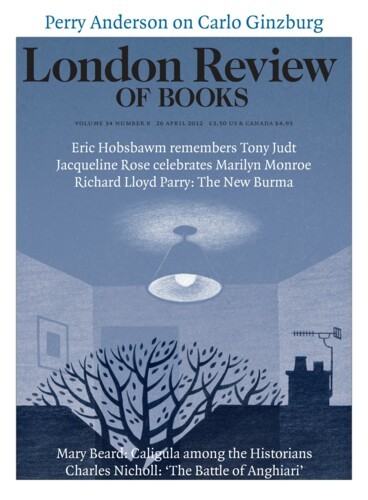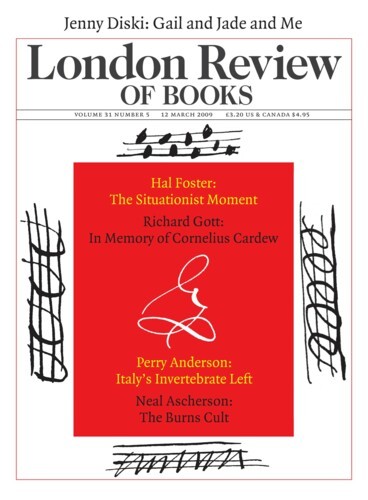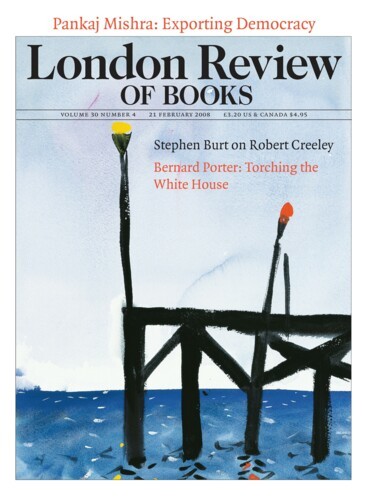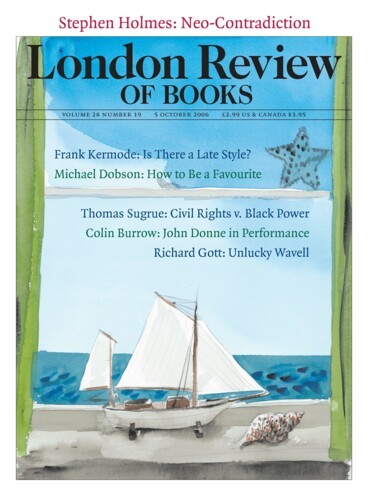With Hugo Chávez’s election victory, the uncertainty that had built up about Venezuela’s future, sloppily fostered by the media in Europe and the United States, was swept away at a stroke. Venezuela enjoyed one of those great explosions of popular joy and excitement on Sunday night that occur just occasionally in Latin America, and of which I have been privileged to watch not a few. It may not survive – the euphoria created by Chávez’s Bolivarian Revolution may evaporate as quickly as it began – but it should be enjoyed while it lasts. Chávez is the most popular figure not just in Venezuela but throughout Latin America, and it is high time that this was more widely recognised. Where in Europe can a politician achieve such popularity? On polling day I went to Zulia, a state in the far west that borders with Colombia.
Richard Gott
Richard Gott was for many years a Latin America correspondent and later the literary editor at the Guardian. His books include Cuba: A New History and Hugo Chávez and the Bolivarian Revolution. He died in November 2025.
Who was Christine?
26 April 2012
Liberation Music: In Memory of Cornelius Cardew
Richard Gott, 12 March 2009
What do we remember about Cornelius Cardew? That he was a brilliant avant-garde composer who pioneered free improvisation and led a Scratch Orchestra of musicians and artists; that he wrote a polemical tract alleging that Stockhausen ‘serves imperialism’; and that, after spending a decade as a prominent Maoist, he was killed by a hit-and-run driver, in an apparent accident that conspiracy theorists have liked to construe as the work of the intelligence services.
Diary: Paraguayan Power
Richard Gott, 21 February 2008
At one end of the desolate park that stretches down from the public buildings of Asunción to the bay adjacent to the Paraguay River, where conquistadors first found refuge in the 16th century, stands a strange construction of concrete and metal that looks more like a contemporary artwork than a memorial. Scrambled within the cement are bronze hands sticking out and an upturned human face, crushed beneath an immense cube of concrete: the destroyed remains of the statue of General Alfredo Stroessner, one of the infamous dictators of the second half of the 20th century. He ruled here for 34 years, from a coup in 1954 until his overthrow in 1989, an annus mirabilis in Paraguay as well as in Eastern Europe.
Wafted to India: Unlucky Wavell
Richard Gott, 5 October 2006
For a schoolboy at Winchester in the 1950s, it was difficult to avoid the dramatic tombstone in the college cloisters. The memorial carries the simple legend WAVELL, deeply etched into the surface of a stone buried horizontally in the grass, and it joins those of other Wykehamists who are remembered there: George Mallory, lost on Everest in 1924, and William Whiting, who wrote the hymn...
Pieces about Richard Gott in the LRB
Perfidy, Villainy, Intrigue: The Black Hole
Ramachandra Guha, 20 December 2012
In 1931, Gandhi visited England to discuss India’s political future. In a speech at Oxford, he hoped that when the empire finally ended, India would be an ‘equal partner with Britain,...
America first
Felipe Fernández-Armesto, 7 January 1993
‘See America first’: the old tourist-office advertising slogan made it sound easy. The most famous moment in the history of exploration, however, is also one of the most baffling. In...
Read anywhere with the London Review of Books app, available now from the App Store for Apple devices, Google Play for Android devices and Amazon for your Kindle Fire.
Sign up to our newsletter
For highlights from the latest issue, our archive and the blog, as well as news, events and exclusive promotions.





